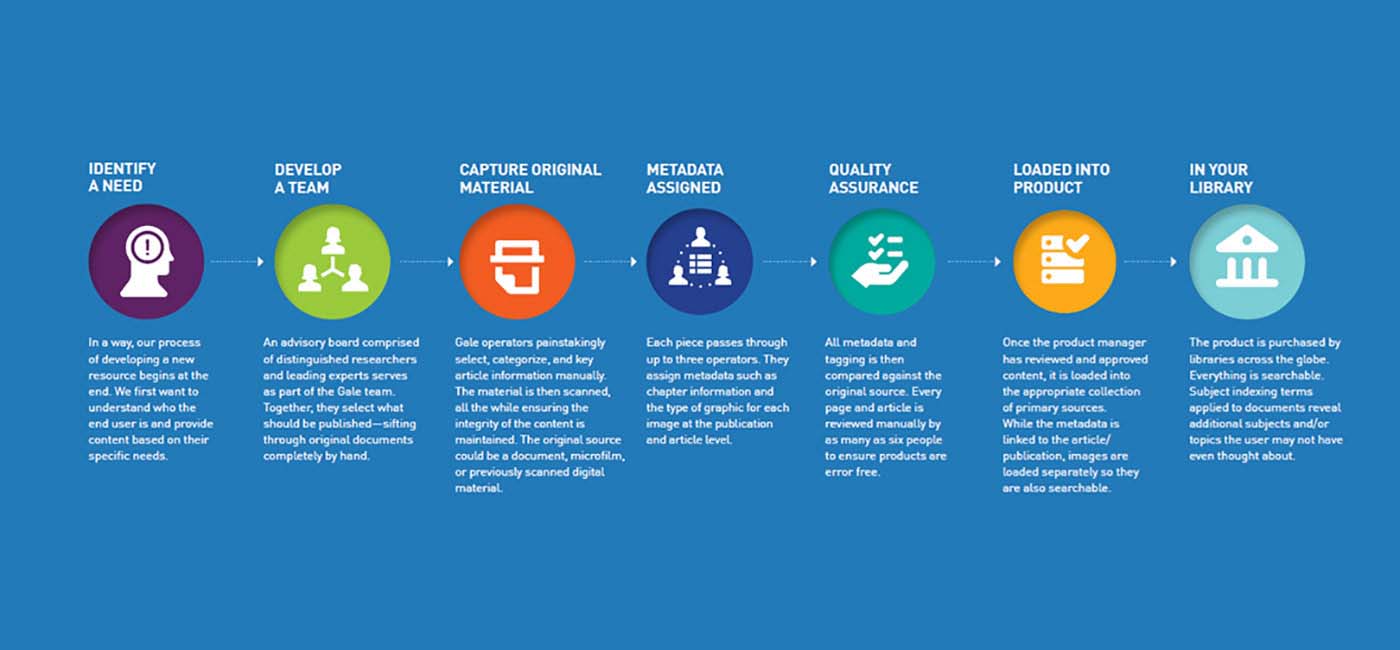When selecting content for Gale databases, the focus is on top-ranking searched subjects, topics tied to curriculum, social issues, people, and current events in the news. Special emphasis is also placed on diversity and inclusion, and Gale strives to include content representative and respectful of diversity and cultural relevance including, but not limited to, race, ethnicity, culture, gender, and sexuality. This includes content created and/or reviewed by subject matter experts and academics reflecting diverse identities and experiences.
Landing pages are edited by a staff of experienced editors dedicated to ensuring the credibility, relevancy, currency, and age appropriateness of content on the topics. Editors collaborate with a large network of contributors, such as librarians, educators, and in-field professionals, who are subject matter experts in their respective fields. Curation includes hand-selecting featured content so students and educators can quickly access some of the best and most authoritative content on a specific issue or topic.
When covering social issues and current events, efforts are made to provide fairly balanced and often opposing viewpoints on the issue. All viewpoint material comes from previously published editorials, opinion pieces, and commentary from a variety of publications, including newspapers and magazines. Gale strives to include a wide range of opinions, including those from differing political stances, viewpoints that influence lawmakers and policy influencers, and viewpoints that reflect current public opinion.
For our Gale In Context: Opposing Viewpoints database, all selected viewpoints are preceded by a commentary section written by Gale subject matter experts that summarizes the viewpoint, explains the author’s position on the topic, and provides contextual information. The commentary opens with a quote from the article and also includes guided reading or critical-thinking questions.
Gale biographies cover thousands of notable figures, including politicians, authors, artists, and athletes. We’ve expanded coverage of LGBTQ+, women, scientists, and historically underrepresented groups (like Latinx, Native Americans, African Americans, Arab Americans, and Asian Americans). Further, data from a million daily users informs editors of who is trending, which ensures the most-accessed content is also the most up to date.

